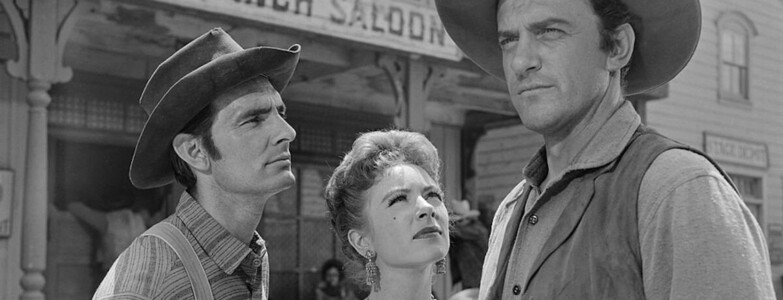A child stands alone at the edge of the playground while classmates whisper and point. Decades later, that same pattern emerges in a conference room where colleagues exclude a coworker from lunch invitations and undermine their contributions in meetings. The tactics change with age, but the underlying mechanics of bullying remain remarkably consistent across the human lifespan.
Bullying behavior follows predictable patterns regardless of the victim's age. In childhood settings, bullies deploy verbal taunts, social exclusion, and physical intimidation. These behaviors repeat over time and exploit power imbalances between the aggressor and target. The pattern requires three elements: intentional harm, repetition, and unequal power dynamics. A single conflict between equals does not constitute bullying, but systematic targeting of someone with less social capital does.
The motivations driving these behaviors stem from several psychological sources. Personal insecurity frequently fuels bullying, as individuals attempt to elevate their own status by diminishing others. The need for control manifests when someone feels powerless in other areas of life and seeks to dominate those they perceive as weaker. Social status acquisition drives bullying in hierarchical environments where aggression can signal strength to observers. Some individuals display aggressive tendencies or lack well-developed social skills, leading them to use intimidation as their primary interaction method. In certain cases, former victims become perpetrators, replicating the patterns inflicted upon them.
Adult bullying mirrors childhood patterns with age-appropriate modifications. Workplace harassment replaces playground intimidation, but the mechanics remain identical. A manager who consistently undermines an employee's work, spreads damaging rumors, or excludes them from important meetings employs the same exclusion tactics used by elementary school bullies. Gossip serves as the adult equivalent of verbal taunting, damaging reputations and isolating targets from social groups. Online trolling represents a modern evolution of psychological abuse, where anonymity provides the power imbalance that physical size or social status offered in childhood.
The psychological damage from sustained bullying creates lasting effects across both age groups. Children subjected to repeated targeting develop anxiety, depression, lower self-esteem, and social withdrawal. These impacts do not simply disappear with graduation. Adults who experienced childhood bullying often struggle with relationship formation and exhibit higher rates of chronic health conditions. The stress response activated by constant threat produces physiological changes, including altered cortisol levels and inflammatory markers that persist long after the bullying ends.
Adult victims face similar psychological consequences. Workplace bullying generates increased stress, anxiety, depression, and profound feelings of powerlessness. The constant activation of threat responses leads to the same physiological changes observed in child victims. A forty-year-old professional excluded from team communications experiences the same neurological stress patterns as an eight-year-old child excluded from playground games. The brain does not distinguish between social threats based on the victim's age.
Support systems and coping mechanisms differ significantly between children and adults. Children typically rely on institutional intervention through parents, teachers, or school counselors. Effective childhood responses include teaching targets to disengage from provocations, seek trusted adults immediately, and utilize buddy systems for protection. Schools bear primary responsibility for identifying and stopping bullying behavior within their jurisdiction. The institutional framework surrounding children provides clear authority structures and intervention protocols.
Adults operate within less protective institutional frameworks. Human resources departments may offer some recourse in workplace settings, but many adult bullying situations occur in contexts without clear oversight. Legal counsel becomes necessary when harassment crosses into actionable territory. Professional therapists provide emotional support and coping strategies. Adults must often document incidents themselves, build evidence of patterns, and advocate for their own protection. The responsibility shifts from institutional guardians to the individual victim, requiring different skill sets and resources.
The progression from childhood to adult bullying resembles a weed taking root in a garden. Early intervention can remove the problem before it establishes deep roots. A school that identifies and addresses bullying behavior prevents that pattern from becoming an ingrained response mechanism. When institutions fail to intervene, the behavior becomes established practice. The child who learns that intimidation produces desired results without consequences carries that lesson into adulthood. The tactics mature and adapt to new environments, but the core strategy remains unchanged.
In professional and social adult settings, the established pattern becomes harder to eradicate. The individual who spent decades refining intimidation techniques operates with practiced efficiency. Their behavior drains energy and productivity from surrounding people, just as invasive plants choke out native species. The responsibility for addressing the problem falls more heavily on affected individuals and on social systems that lack the clear authority structures of schools. Both childhood and adult bullying grow from the same root: the need for power over others. Effective removal requires recognition of the pattern, clear intervention plans, and sustained support for targets.
Understanding bullying as a consistent pattern across age groups reveals both the challenge and the opportunity. The challenge lies in the behavior's adaptability and persistence. The opportunity emerges from recognizing that intervention strategies proven effective in childhood settings can inform adult responses. Social systems that clearly define unacceptable behavior, provide safe reporting mechanisms, and impose consistent consequences can disrupt bullying patterns at any age. Individual targets who recognize the pattern can seek appropriate support and refuse to internalize the aggressor's narrative. The power imbalance that enables bullying can be disrupted through awareness, intervention, and systemic accountability.

